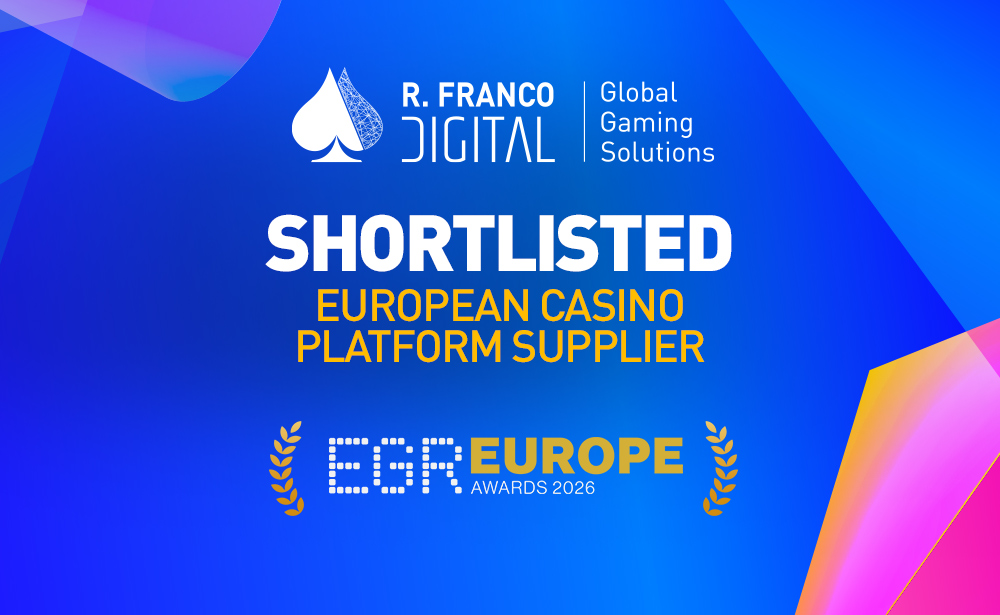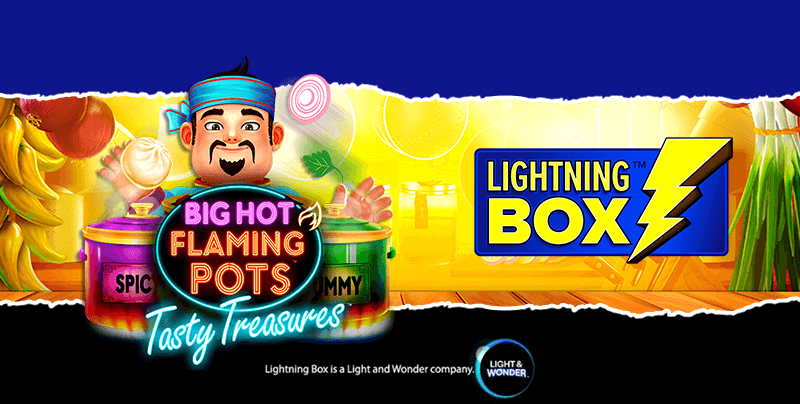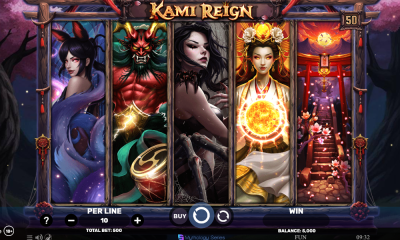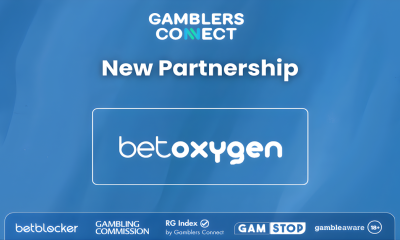Latest News
NSoft’s Betting Terminal BackOffice – an irreplaceable admin tool

The other side of SSBTs: NSoft’s Betting Terminal BackOffice – by Dario Šaravanja, Product Manager at Seven Sportsbook Platform
Self-Service Betting Terminals, or simply SSBTs, are well known in the global betting industry for ages.
With the advancing technology and fresh ideas, SSBTs are constantly upgrading, and the betting operators have recognized their potential.
SSBTs are not just for punters
Betting terminals are considered to be a critical asset for enriching the offering, hence diversifying monetary streams. They are not necessarily bound to the specific premises. This feature makes betting terminals perfect for extensive punter outreach even outside of betting shops.
Having said that, there is one aspect of betting terminals that is often overlooked. We are talking about the administration here: how betting operators keep track of daily operations. In other words, what closes the gap between SSBTs, punters, operators and management? Our answer to that question is Terminal BackOffice, and NSoft’s clients seem to love it.
Closing the gap
Terminal BackOffice, abbreviated as TBO, is an integral part of the NSoft software for betting terminals. It stands as a “behind the scenes” application punters are unaware of, dedicated to making life easy for the operators and management. Think of daily transactions, processed tickets, terminal reports, operator shifts and access cards, terminal’s hardware configuration, maintenance mode, billing information per terminal, balance recovery, and much more. All of those things are part of the terminal back office.
Betting Terminal BackOffice system has been made with all of the users in mind. We improve the system constantly in alignment with the rest of our software solutions and clients’ needs, ensuring nothing is left out.
NSoft’s global expansion confirmed the importance of such functionalities regardless of where the clients come from or where they locate SSBTs. Reasons are various yet mutually shared – common pain points include the complexity of managing terminal operations, diverse hardware, lack of per terminal insight and low sense of managing. TBO tackled those issues by leveraging software solutions for providing insight into each SSBT at any time from anywhere (physically or remotely), providing a supreme sense of management, as well as balancing technical complexity and ease of use.
A must-have for a land-based business
Terminal BackOffice comes with NSoft’s sports betting platform – Seven. The system is independent of the SSBTs’ brands meaning it is robust enough that can be a part of the STARK’s terminals – NSoft’s hardware unit – or any 3rd party terminals running Seven platform.
TBO offers content in accordance with allowed permissions for each operator or manager. This business logic ensures operational safety as responsible managers can neatly set permissions for their personnel from the permission pool.
Content and related actions are visually organized per domain for smooth navigation. Domains include Card Operations, Tickets, Wallet, Billing, Reporting, Options and Settings.
- Card Operations section incorporates management of operator cards and their holders. Cards can be used for faster log-in inside TBO via card readers.
- Tickets section offers the creation of vouchers and a view of processed tickets on the SSBT per each active product, with options to check their statuses, print copies, cancel or pay them out.
- Wallet and Billing domains consist of different wallet types, such as operator and terminal wallets. It is a collection of money flow information, shift management, SSBT transfers and transactions, billing details and billing profit information.
Consists of different Wallet types
- Reporting provides different types of reports, from profit, balance to turnover. Depending on the nature of the report, data is sorted per product and/or in total.
- Options and Settings wrap up various hardware/software options regarding connected peripheral devices, such as money acceptors, printers and scanners, touchscreen calibration, theme settings, landing page and service mode of betting terminals.
Options -overview
Besides mentioned functionalities, TBO also incorporates the logic of safe balance recoveries after power loss or similar unwanted events.
A reliable system to meet customer-first philosophy
Terminal BackOffice is a backbone of betting operators’ day-to-day business activities when it comes to this channel. The front: flashy design, a wide range of games, simple UX together with the quality hardware is incomplete without a simple management interface. The betting operators, and any business really, nurture the philosophy: customer first. In order to meet this goal, the operator has to have a strong reliable system to keep things run smoothly.
Powered by WPeMatico
Arizona
Arizona Department of Gaming Reports $44.9 Million in Tribal Gaming Contributions for the Second Quarter of Fiscal Year 2026

The Arizona Department of Gaming (ADG) announced today $44,891,270 in tribal gaming contributions to the Arizona Benefits Fund for the second quarter of Fiscal Year (FY) 2026. This represents an approximate 5.6 percent increase when compared to the same quarter of FY 2025.
“The financial support that tribal gaming provides the state of Arizona continues to power local and statewide needs that are vital to healthy and safe communities,” said Jackie Johnson, Director of the ADG. “With nearly $45 million in tribal gaming contributions in the most recent period, the Department is proud to ensure the continuation of important revenue streams that positively impact Arizonans.”
The Arizona Benefits Fund receives 88 percent of tribal gaming contributions, providing significant dollars to support instructional improvement for schools, trauma and emergency care, tourism, and wildlife conservation throughout the state. If interested in viewing the cumulative tribal gaming contributions by year, please visit our reports webpage: gaming.az.gov/resources/reports.
Tribal gaming contributions to the Arizona Benefits Fund for the second quarter of the State’s FY 2026 are as follows:
Instructional Improvement Fund/Education………………………………………………..$22,373,810
Trauma and Emergency Services Fund………………………………………………………..$11,186,905
Arizona Department of Gaming Operating Costs………………………………………….$4,040,214
Arizona Wildlife Conservation Fund……………………………………………………………$3,196,258
Tourism Fund…………………………………………………………………………………………..$3,196,258
Problem Gambling Education, Treatment and Prevention……………………………..$897,825
Total: Tribal Gaming Contributions to the Arizona Benefits Fund……………………..$44,891,270
Per the Arizona Tribal-State Gaming Compact, the remaining 12 percent is distributed by the tribes to the cities, towns, and counties of their choosing for community services and public safety programs for local governments. Since FY 2004, cumulative contributions have totaled approximately $2.5 billion, benefitting both the state and its cities, towns, and counties.
Currently, there are 26 Class III casinos in Arizona, which ADG regulates in partnership with Arizona tribes. For more information, view our tribal gaming webpage: gaming.az.gov/tribal-gaming-page.
The post Arizona Department of Gaming Reports $44.9 Million in Tribal Gaming Contributions for the Second Quarter of Fiscal Year 2026 appeared first on Americas iGaming & Sports Betting News.
888.it
R. Franco Digital Shortlisted for Casino Platform Excellence at EGR Europe Awards 2026

R. Franco Digital, the leading Spanish iGaming provider, has been officially shortlisted for Casino Platform Supplier of the Year at the prestigious EGR Europe Awards 2026. The nomination recognizes a landmark year for the company, characterized by the explosive growth of its IRIS Open Omnichannel Platform and a major commercial breakthrough into the Italian market.
The winners will be announced during a gala ceremony on February 18, 2026, at the Hilton Malta, where the industry’s top-tier operators and suppliers gather to celebrate European gaming excellence.
IRIS: The Engine of Omnichannel Growth
The core of R. Franco Digital’s success lies in its IRIS platform, a highly scalable, multi-jurisdictional solution that unifies casino, sports betting, and retail management.
IRIS Platform Milestones (2025-2026):
-
Jurisdictional Reach: Certified in 6 jurisdictions and operational in over 10 regulated markets.
-
Content Depth: Seamlessly integrated with over 1,600 games from global third-party providers.
-
Operational Stability: Provides 24/7 multilingual support and advanced real-time analytics for operators.
-
Commercial Momentum: Secured 50+ new operator partnerships and entered three new markets within the last 12 months.
Performance Highlights: 4 Billion Game Rounds
R. Franco Digital’s games portfolio has seen a massive surge in engagement, bolstered by 20 new high-performance slot releases in 2025. Standout titles such as Strange Spins, Aphrodite, Zorro: Final Duel, Ovomon, and The Phantom contributed to a record-breaking year.
| Metric | 2025–2026 Achievement |
| Total Game Rounds | 4 Billion+ across regulated markets |
| Revenue Growth | 30% Increase during the judging period |
| New Content | 20 New slot titles launched |
| Expansion | Debut in the Italian regulated market |
Strategic Italian Market Entry
A major factor in the EGR shortlisting was R. Franco Digital’s successful entry into Italy. The provider rapidly localized its content to meet the specific demands of Italian players through tier-one partnerships:
-
Stanleybet.it: Launched 19 games, including the Italian-exclusive debut of Strange Spins.
-
888.it: Successfully rolled out the popular Super 7 3×3 title.
“We’re proud to be shortlisted for this award, which reflects the strength of our IRIS platform and the quality of the content we’ve delivered over the past year,” said Javier Sacristán Franco, International Business Director at R. Franco Digital. “Our team has worked hard to support operators with reliable, innovative solutions… we are delighted to see that effort recognised.”
The post R. Franco Digital Shortlisted for Casino Platform Excellence at EGR Europe Awards 2026 appeared first on Eastern European Gaming | Global iGaming & Tech Intelligence Hub.
Big Hot Flaming Pots
Big Hot Flaming Pots: Tasty Treasures – Lightning Box Brings Land-Based Hit Online

Light & Wonder has officially launched Big Hot Flaming Pots: Tasty Treasures, the digital debut of its highly successful land-based franchise. Developed by in-house specialist studio Lightning Box, this 3×5 slot offers 243 ways to win and a high-energy “three-pot” mechanic that has already become a staple on casino floors worldwide.
The game transitions the whimsical “dumpling-tossing” theme to online audiences, combining vibrant Asian-inspired aesthetics with a deep mathematical model designed for high-engagement sessions.
The Three-Pot Mechanic & Seven Feature Combinations
At the core of the gameplay is the persistent pot system. Landing specific colored coins fuels three separate pots—Yummy, Spicy, and Upsized. These pots can trigger individually or in any combination, leading to seven distinct bonus paths.
| Feature Mode | Gameplay Enhancement |
| Yummy Mode | Increases the Hold & Spin respin counter from 3 to 4, significantly extending bonus life. |
| Spicy Mode | Introduces Chilli multipliers; landing a pepper adds its cash value to every symbol currently held on the board. |
| Upsized Mode | Unlocks a Dual Grid (two reel sets) for the Hold & Spin round, doubling the win potential. |
| Combined Modes | Triggering all three at once creates the “Mega Bonus,” featuring dual grids, 4 respins, and value-boosting peppers. |
Innovation: The Stack N’ Hit Feature
Feature
Unlike traditional Hold & Spin mechanics where symbols simply lock until the round ends, Tasty Treasures introduces the Stack N’ Hit evolution.
evolution.
-
Reel Clearing: When a vertical reel is filled with Bun symbols, the prizes are instantly collected, and the reel is cleared.
-
Persistent Respins: Clearing a reel creates open spaces for new prizes to land, allowing the bonus round to continue far longer than standard industry alternatives.
-
The Path to Grand: Each cleared reel activates a “Pepper Tracker” above it. Lighting up all five trackers awards the Grand Progressive Jackpot.
Jackpot Tiers & Base Game Depth
Operators benefit from a versatile math model that supports both consistent base-game performance and high-volatility jackpot chases.
-
Progressive Jackpots: Grand and Major tiers for life-changing win potential.
-
Fixed Jackpots: Minor and Mini tiers awarded through symbols landing during features.
-
Nudge Wilds: In the base game, Wild symbols can nudge to cover entire reels, assisting in achieving the 243-way payouts.
“Big Hot Flaming Pots: Tasty Treasures carries forward a brand that has already made its mark in land-based venues,” says Michael Maokhamphiou, Studio Director at Lightning Box. “This release offers operators a flexible, high-performing title that combines familiarity with fresh layers of engagement.”
The post Big Hot Flaming Pots: Tasty Treasures – Lightning Box Brings Land-Based Hit Online appeared first on Eastern European Gaming | Global iGaming & Tech Intelligence Hub.
-

 Hold and4 days ago
Hold and4 days agoPragmatic Play Rings in 2026 with Joker’s Jewels Hold & Spin™
-

 iGaming News 20264 days ago
iGaming News 20264 days agoSpinomenal Rings in 2026 with Japanese-Inspired “Kami Reign Ultra Mode”
-

 Five Elements Slot4 days ago
Five Elements Slot4 days agoPG Soft Concludes 2025 with High-Volatility Launch: Mythical Guardians
-

 Latest News4 days ago
Latest News4 days agoFrom ‘Mummyverse’ to Crash Games: Belatra Reviews a Landmark 2025
-

 Bespoke Gaming Studio4 days ago
Bespoke Gaming Studio4 days agoCreedRoomz and Casumo Forge Strategic Partnership to Elevate Live Casino Experience
-

 Akshat Rathee3 days ago
Akshat Rathee3 days agoIndian Esports 2026: Strategic Growth and the Asian Games Milestone
-

 B2B gaming software4 days ago
B2B gaming software4 days agoGamblers Connect and BetOxygen Announce Strategic B2B Partnership
-

 Aztec Slot3 days ago
Aztec Slot3 days agoEvoplay Unveils Sunstone Riches: An Aztec Adventure Powered by the Sun

















